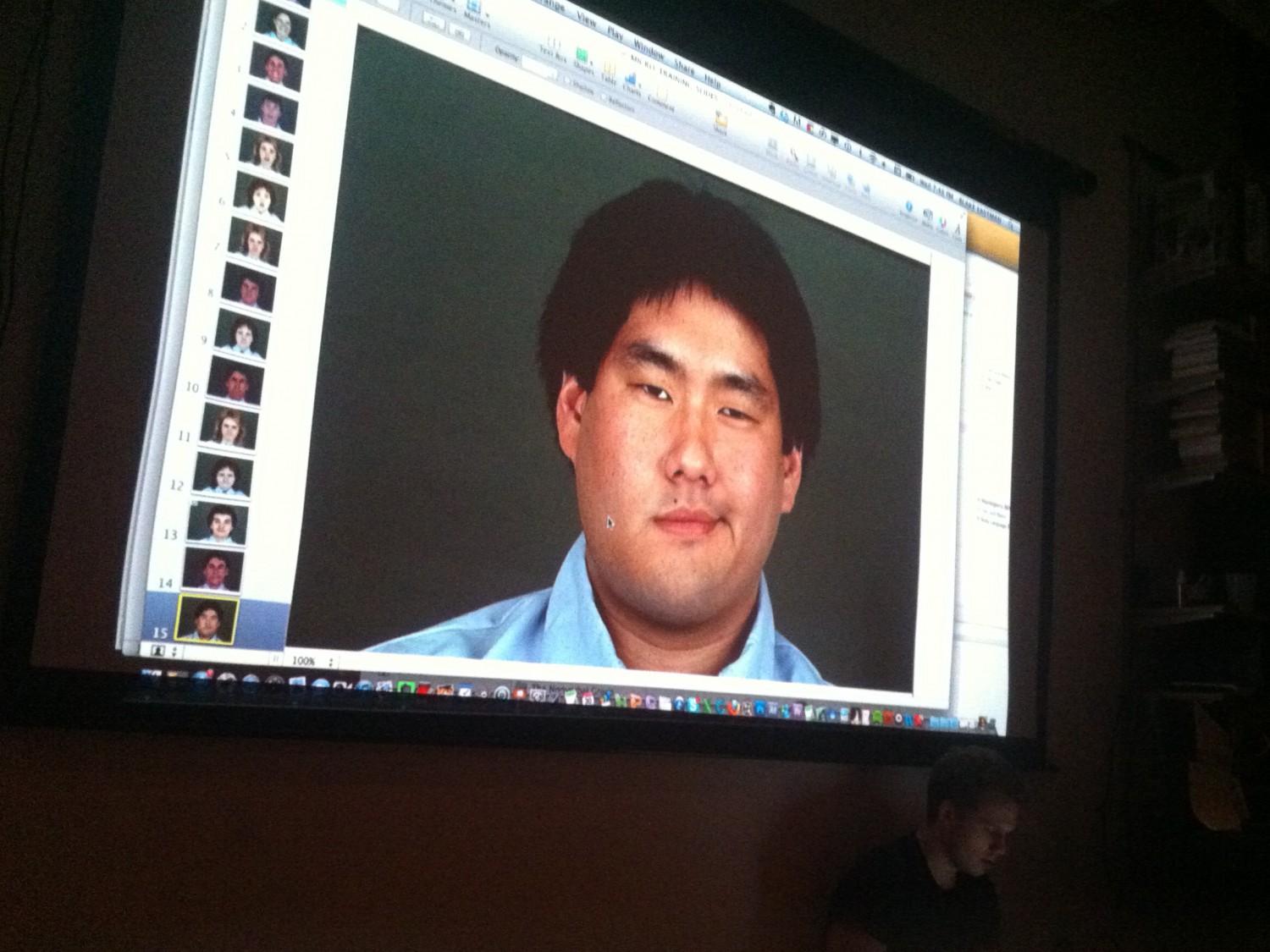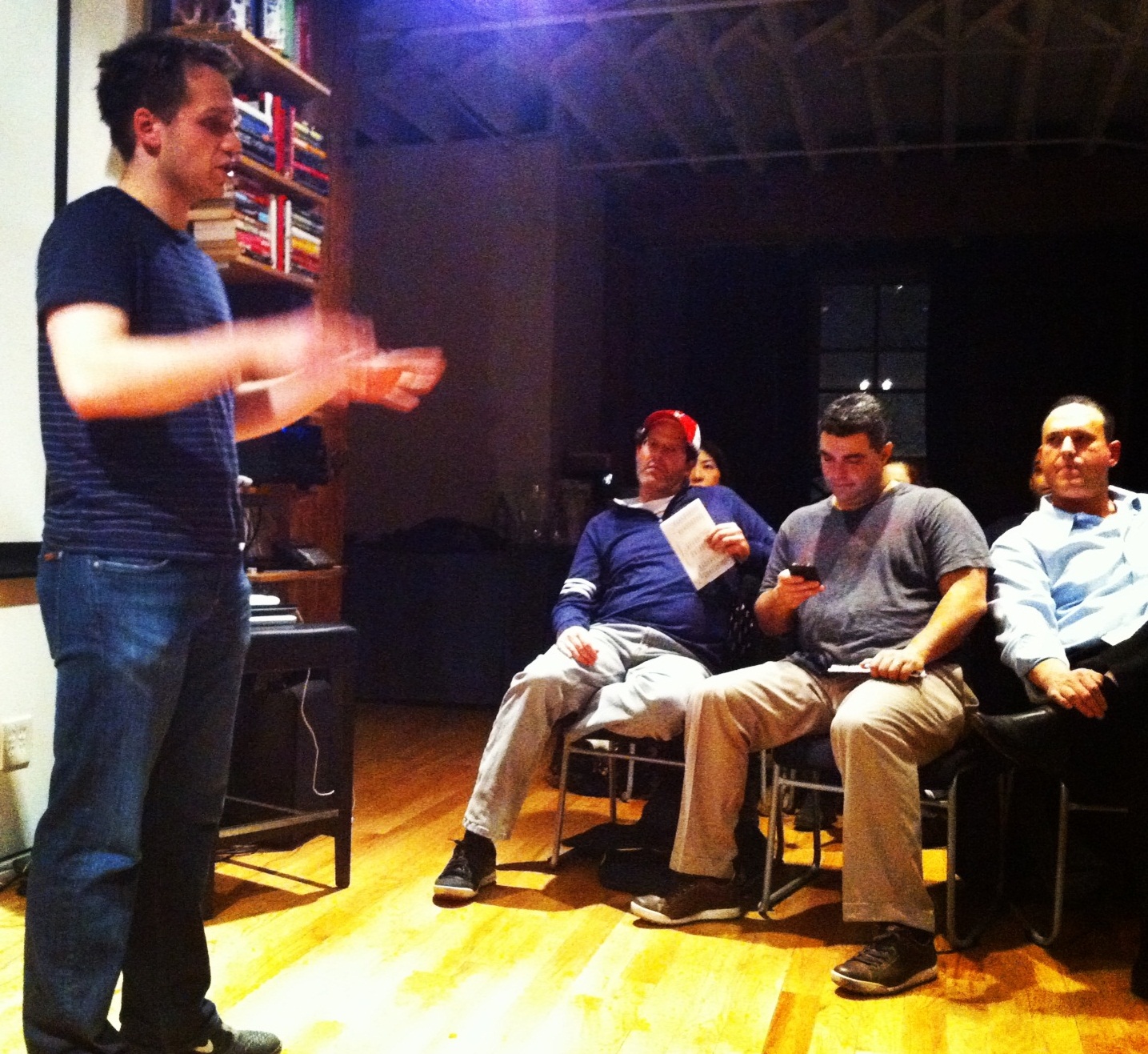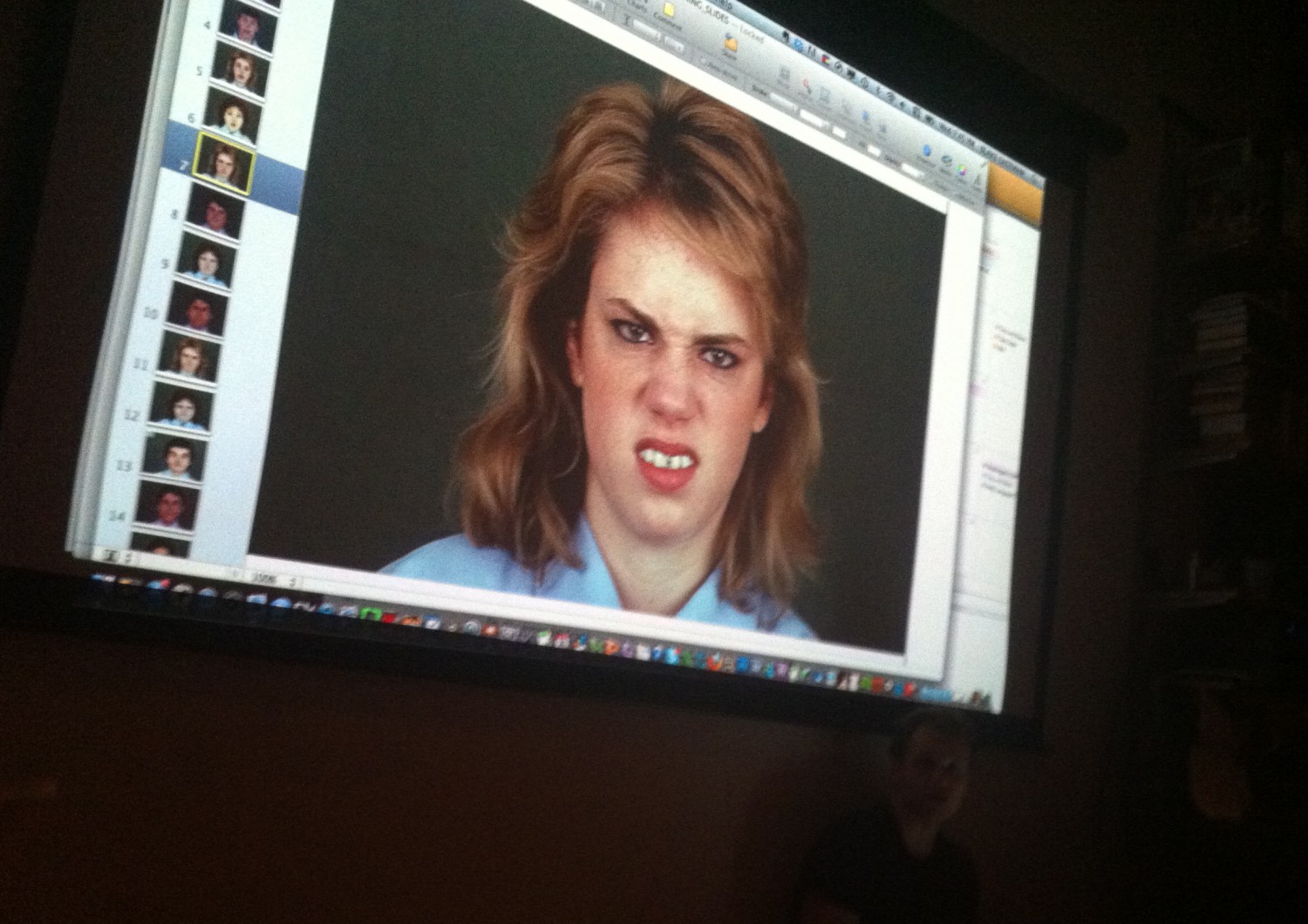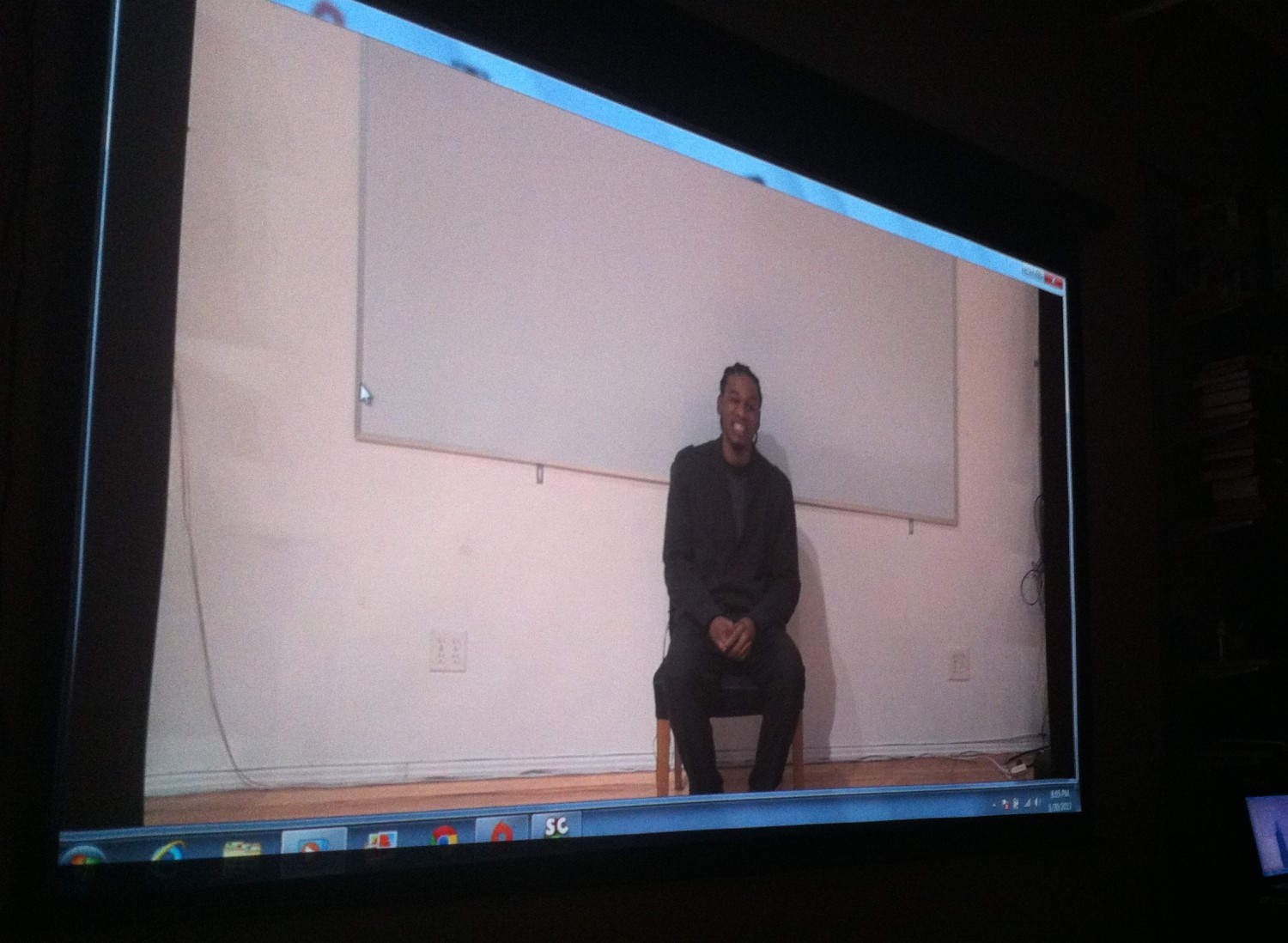You all love my blog, right? Well, now I’ll finally know the truth.
Tonight I went to a lie-detecting class hosted by The Nonverbal Group in Midtown. The three-hour workshop whizzed through the basics, but here is some of the most I interesting stuff I learned:
- There are no studies that say you can tell someone is lying when they don’t make eye contact
- Rather than moving more, liars actually move less thanks to ‘cognitive overload’ – that is, they’re spending so much effort lying, their bodies can’t focus on anything else
- Verbal clues include shorter responses, fewer references to themselves (Q: ‘Did you cheat on me?’ A: ‘What sort of person would cheat on you?!’) and taking time to respond
- Nonverbal traits include a lower blink rate, fewer gestures and more pauses
- If you want to check out someone’s trustworthiness, throw out the name of a fake place you claim to have been to, and see if they play along and pretend to know it. (In journalism, I’ve definitely come across a fair few people who would take the bait here)
- If you’re not sure if someone’s telling the truth, get them to repeat a story to someone else – and spot the changes

We looked micro-expressions which are quick responses to a piece of information. (This one is contempt)
Interestingly, people only have a 52 per cent accuracy rate for guessing whether someone is lying or not, which is much worse than I thought – and pretty terrible. The biggest problem when it comes to telling a lie from a truth seems to be bearing in mind other factors; someone might appear nervous when you accuse them of something because they’ve committed a similar – but lesser – offense, for example.
Lots to take in but so fascinating.
To help us wrap our heads around the information, our instructor Blake led us through a series of exercises. We had to guess who was lying in recorded interviews, and had to spot micro-expressions (really quick reactions) in other videos and say what these expressions gave away.
Blake was a fantastic teacher and just so charasmastic… although I quickly realised I’d never want to spend time with him socially. It’s his job – and obsession – to watch human interactions and make judgments on people’s sincerity and characters, so the whole time I’d be thinking about what he was thinking about me.
As we left, our minds buzzing with reams of new information, Blake suggested that we keep track of just how many lies we tell every day. And he said the easiest way to start telling if people are lying is through speech errors and hesitations.
So watch out.







Recent Comments